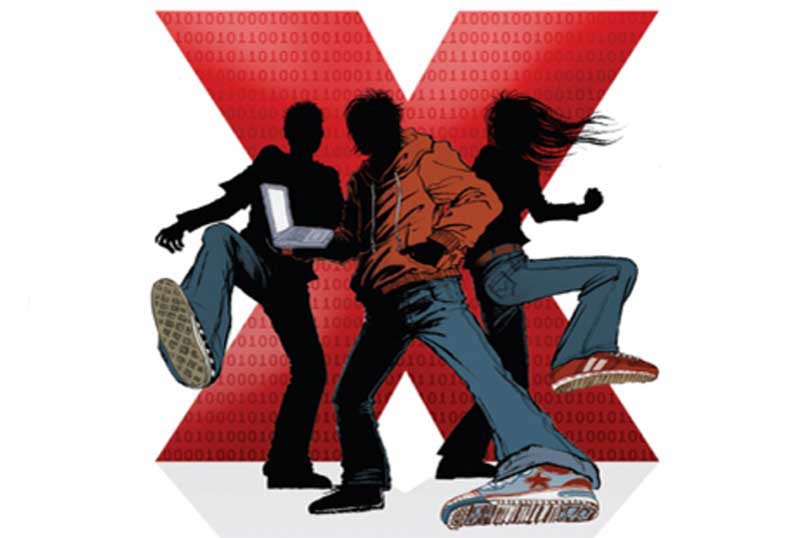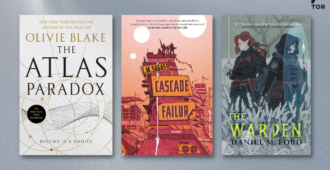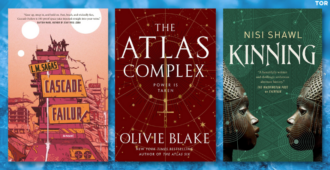Welcome to Throwback Thursdays on the Tor/Forge blog! Every other week, we’re delving into our newsletter archives and sharing some of our favorite posts.
Cory Doctorow’s Little Brother was first published in April 2008. Since then, it’s garnered attention, awards, and legions of fans. The much anticipated follow-up, Homeland published in February of 2013, and is now available in trade paperback. To celebrate the return of Marcus Yallow, we looked back into our archives and found this piece from April 2008, when Cory Doctorow spoke about teaching kids about online security. We hope you enjoy this blast from the past, and be sure to check back every other Thursday for more!
How do kids figure out which search-engine results to trust? What happens to their Facebook disclosures? How can they tell whether a camera, ID check, or rule is making them safer or less safe? In the absence of the right critical literacy tools, they’ll never know how to read a Wikipedia article so that they can tell if it’s credible. They’ll never know how to keep from ruining their adulthood with the videos they post as a teenager, and they’ll never know when the government is making them safer or less safe.
Little Brother tells the story of young people who bootstrap their own security literacy because the adults around them fail to do so. I think that’s a depressingly realistic storyline, unfortunately. Security is hard to get right, and doubly so when it involves unfamiliar threats and countermeasures — can you tell at a glance whether the new high-tech lock in the window of your bike shop will work? (Here’s a clue: the best-selling lock brand for two decades was recently shown to be breakable with a disposable Bic pen in 10 seconds flat.)
Kids need critical tools and they need to sharpen those critical tools through debate and discussion, and that’s where Little Brother comes in. I don’t expect anyone to agree with everything I say — and I certainly hope that kids question every word in Little Brother and figure out how they feel about this stuff for themselves.
We live in an age where critical discussion of security is *literally* illegal. You can’t turn to the TSA officer who’s just taken away your water bottle and say, “I don’t believe that you can bomb a plane with water.” Mentioning the word “bomb” in front of a TSA agent is not allowed.
The difference between freedom and totalitarianism comes down to this: do our machines serve us, or control us? We live in the technological age that puts all other technological ages to shame. We are literally covered in technology, it rides in our pockets, pressed to our skin, in our ears, sometimes even implanted in our bodies. If these devices treat us as masters, then there is no limit to what we can achieve. But if they treat us as suspects, then we are doomed, for the jailers have us in a grip that is tighter than any authoritarian fantasy of the Inquisition.
It’s my sincere hope that this book will spark vigorous discussions kid/adult about security, liberty, privacy, and free speech — about the values that ennoble us as human beings and give us the dignity to do honor to our species. Thank you for sharing it with the young people in your life — and for being a guide at a time when we need guides more than ever.
Little Brother (Tor Teen; 978-0-7653-2311-8, $10.99), by Cory Doctorow, published in April 2010. Visit Cory online at craphound.com or boingboing.net.
This article is originally from the May 2008 Tor/Forge newsletter. Sign up for the Tor/Forge newsletter now, and get similar content in your inbox twice a month!







